
Feature Article
I. Optimizing the Food Safety Regulatory Mechanism

Hi, everybody! As you may be aware, the Government is planning to reorganize the food safety regulatory framework to enhance food safety and veterinary public health control. Let me tell you more about the new framework.
Food safety is one of the utmost public concerns in Hong Kong. Food safety control measures in Hong Kong are based on the risk analysis principles promulgated by the Food and Agriculture Organization (FAO) and the World Health Organization (WHO) of the United Nations, which consist of three intertwining processes of risk assessment, risk management and risk communication.
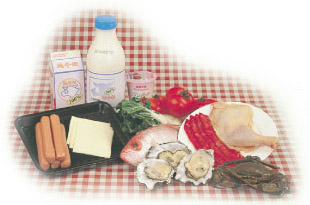
At present, the Food and Environmental Hygiene Department (FEHD) and the Agriculture, Fisheries and Conservation Department (AFCD) are jointly responsible for areas of work on food safety and agriculture and fisheries (including both food and non-food animals). As both departments are responsible for the execution of veterinary public health and food safety functions, the deployment of human resources cannot be optimized. Given our limited resources and the fact that most of our food come from the Mainland and overseas countries, the current regulatory framework attaches importance to sample testings mainly at retail level rather than exercising effective control at source. According to the latest food safety management concept of developed countries in the West, management and control at source is the best way to ensure food safety.
In view of increasing public concern over food safety and the community's expectation for comprehensive regulation of food sold in Hong Kong to ensure that they are safe and wholesome, the Government has conducted a comprehensive review of the current surveillance and regulatory framework. To pool our resources for more effective control along the food supply chain to ensure food safety, the Government proposed to the LegCo Panel on Food Safety and Environmental Hygiene on 17 October 2005 to reorganize FEHD and AFCD and form a new department, namely the Food Safety, Inspection and Quarantine Department (FSIQD) which specializes on food safety related works.
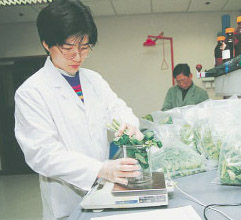
FSIQD will be responsible for food safety, veterinary public health, inspection, quarantine and regulation over animals and plants, vegetables, fresh water fish for food purpose, seafood and food products, as well as control over local livestock, poultry farms and mariculture farms, etc. Under the new framework, the regulation of food safety will be more comprehensive, while control at source and inspection of designated mariculture farms in Hong Kong and the Mainland will also be enhanced.
A Centre for Food Safety (CFS) will be set up in FSIQD and a post of Controller, Centre for Food Safety will be created. The Controller will oversee the daily operation and management of the CFS and formulate strategies and objectives on food safety. As the spokesman for the CFS, the Controller must have professional knowledge and experience in public health and food safety, and a good rapport with food safety regulatory authorities in the Mainland and overseas to ensure the smooth operation of the CFS. Various branches will be set up under FSIQD to undertake matters relating to food safety and veterinary public health. Supporting and professional staff including veterinarians, medical doctors and food scientists like toxicologists, nutritionists, food biotechnologists, etc. will be recruited as necessary. These new arrangements will enable the Government to enforce the existing food safety legislations and to review and amend the regulatory requirements more effectively.
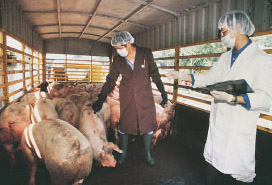
With the establishment of FSIQD, food safety control will be optimized and control at source will be enhanced. FSIQD will step up the regulation and inspection of local livestock and poultry farms, vegetable farms and fish rafts. Special teams with interdisciplinary expertise will be formed to step up inspection of registered farms, fish processing plants and mariculture farms in the Mainland and to facilitate the same efforts in other countries supplying food to Hong Kong. FSIQD will also enhance the food surveillance efforts at import, wholesale and retail levels to assure the public that food products supplied by the Mainland and other countries are safe for consumption.
To meet the community's expectation for improving our food safety regulatory framework and mechanism, the Government will proceed with the re-organization as early as possible. It is expected that the new framework will be put in place on or around June 2006.
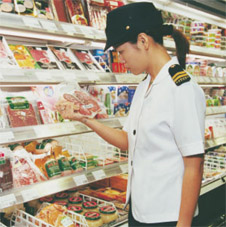
I would like to remind you that food safety can only be assured through the tripartite collaboration between the Government, the trade and the community. In short, the Government monitors the trade's compliance with the legislations on food hygiene and safety and provide the public with food safety information. The trade should endeavour to ensure that all food products imported/manufactured/sold meet the food hygiene and safety standards. The community should stay alert to the risks of the food they bought and follow the proper hygienic practices in handling food.
II. Observe food hygiene practices when supplying hotpot
"Hotpot" is very often the first yummy food that comes to people's mind in cold winter. Gathering round the table with family or friends to savour hotpot is a great way to satisfy the stomach and to take the chill off. Hotpot has become popular in Hong Kong with many restaurants, big or small, offering different varieties of hotpot.
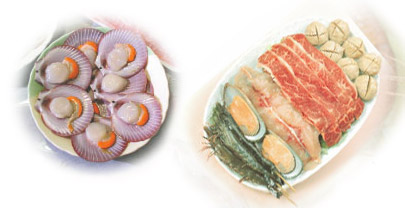
People enjoy hotpot in much the same way. Basically, it is dip boiling. But what tickles is the combination of different "soup base," ingredients and sauces that give hotpot varying characteristics and flavours. Some hotpot ingredients, including shellfish, seafood and meat, are high risk food because they may contain pathogens and viruses such as Vibrio parahaemolyticus, Norovirus, hepatitis A virus, and Staphylococcus aureus. The restaurant management must be careful and ensure food hygiene practices are observed when serving hotpot in order to prevent food poisoning incidents. The following measures should be adopted to ensure food safety:
* Purchase fresh ingredients
- Purchase food materials from licensed and reputable suppliers.
- Upon delivery, check whether the food materials are fresh and the packaging is intact. Read the label of prepackaged food and avoid buying food items that are contaminated or expired.
- Keep the invoices for 60 days so that problematic food can be traced.
* Store food properly in suitable environment and at appropriate temperature
- Meat and other perishable hotpot ingredients should be covered and stored in the refrigerator at a temperature between 0oC and 4oC until they are to be served.
- Frozen food should first be thawed in the refrigerator at a temperature between 0oC and 4oC or by microwave oven.
- Do not display too many food items, and the food displayed should not be kept at room temperature for more than 4 hours. The area where food is displayed should always be kept clean.
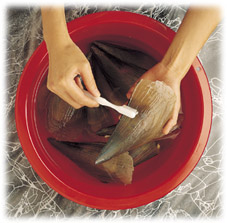
* Keep food, utensils and both hands clean
- Wash all food materials thoroughly; vegetables should be washed and then soaked in clean water for about an hour.
- Handle shellfish with care: scrub and wash the shells thoroughly and keep shellfish in clean water for at least half a day to allow self-purification.
- Bowls and dishes that have been used for holding raw food materials must be thoroughly cleaned and sanitized before reuse.
- Wash hands thoroughly with soap and clean water before and after handling food, and after going to the toilet.
* Handle raw and cooked food separately
- Provide two separate sets of chopsticks and utensils for customers to handle raw and cooked food separately and avoid cross contamination.
- Raw and cooked food served to customers should be kept separately to reduce the risk of cross contamination.
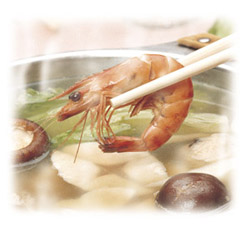
* Advise customers to cook food thoroughly
- Advise customers verbally or by notices to cook food thoroughly before consumption. Mud oysters, in particular, should be cooked in boiling water for at least five minutes.
- Advise customers not to dip cooked food in raw eggs as it may contain bacteria such as Salmonella.
III. Food Consumption Survey

FEHD is conducting the biggest and the most comprehensive food consumption survey in Hong Kong to collect information on food consumption patterns of the general public and evaluate the risks associated with food. In the past, only small-scale studies and no territory-wide surveys had been conducted to collect food consumption data for the purpose of food safety risk assessment. It is therefore crucial for FEHD to conduct this survey to establish a comprehensive database for such purpose. The survey will also enhance the department's risk assessment capacity. Take the recent malachite green case as an example, if comprehensive food consumption data is available, it will facilitate FEHD's risk assessment. Moreover, such information will be useful for the Government to formulate public policies and education strategies to promote food safety in Hong Kong.
This survey mainly collects food consumption data of the local population, such as the types of food intake, amounts of food intake and dietary habit. FEHD has commissioned the Chinese University of Hong Kong (CUHK) to conduct this survey. The CUHK survey team consists of experts in nutrition, public health and statistics as well as well-trained interviewers.
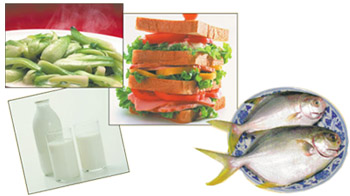
Fieldwork has started this year. FEHD will send invitation letters to selected households to explain the interview arrangement. Invited households are invited to contact the CUHK Survey Unit by telephone so that one member can be recruited from each household for interview.
Invited households are urged to render their full support and cooperation by actively participating in this survey. For further information, please call the FEHD Hotline on 2868 0000 or the CUHK Survey Unit on 2609 6876 during office hours, or e-mail to the CUHK Survey Unit at hkfcs@cuhk.edu.hk.
Food Safety Tips
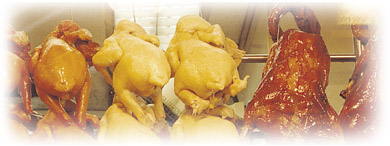
Prevention of Avian Influenza - Tips for Food Safety
Raw poultry meat and poultry eggs may be contaminated by bacteria or viruses such as salmonellas or avian flu virus. The mainstay of prevention lies with thorough cooking, which can kill bacteria and viruses in food. According to the World Health Organization, there is no evidence that properly cooked poultry or eggs can be a source of infection. Therefore, the risk of contracting avian flu could be greatly reduced by thorough cooking of poultry meat and poultry eggs.
As a general precautionary measure, the public are advised to observe good personal, food and environmental hygiene at all times. The following safety tips are useful:
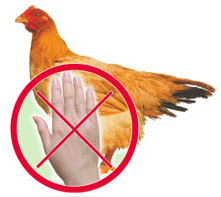
Purchase
- Avoid touching chickens or their faeces when buying live chickens. Do not blow their vent.
Handling
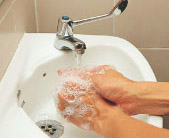
- After handling live, frozen or thawed poultry or eggs, wash hands thoroughly with soap or liquid cleanser.
- After handling poultry, clean all working surfaces, utensils and equipment thoroughly.
- Use separate knives and chopping boards to handle raw food and ready-to-eat food.
- Keep raw poultry meat in well covered container and store it in the lower compartment of refrigerator. Keep ready-to-eat and cooked food in the upper compartment to avoid cross-contamination.
- Wash eggs stained with dirt and consume them as soon as possible.
- Avoid consuming eggs with cracked shell as they are prone to be contaminated.
- Clean the egg shell thoroughly before cooking.
Consumption
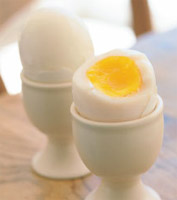
- Do not use raw or half cooked eggs to prepare food which will not be cooked further.
- Do not eat raw eggs or dip cooked food into any sauce mixed with raw eggs. Cook eggs thoroughly until the white and the yolk are firm.
- Cook poultry thoroughly before consumption. The centre of poultry meat should reach 70oC for at least two minutes.
- If pinkish juices run from the cooked poultry or the middle parts of the bones are red in colour, cook the poultry again until fully done.
Food Safety Plan Corner
Food Safety during and after Power Failure/Suspension
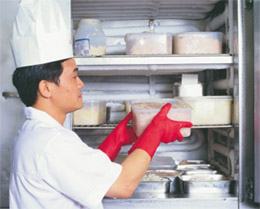
While electricity supply in Hong Kong remains stable, power failures/suspension do occur occasionally. During such time, the cooling system of the refrigerator stops, and the food in the refrigerator may turn bad easily. To ensure food safety, please read the following tips to minimize the risk of food poisoning caused by power failures/suspenison.
In case of power failure/suspension, keep the refrigerator door closed to slow down the rise of temperature inside the refrigerator. If prior notice on the time of suspension of electricity supply has been given by the building management office/the power company, or you know that the suspension will last for quite some time, you should transfer the food to an unaffected refrigerator or put sufficient dry ice in the refrigerator to keep the food at proper temperature.
If the refrigerator (with the temperature maintained at 4oC or below before the power failure/suspension) is kept closed during power failure/suspension, the food stored therein can be kept for about 4 hours while the food stored in a closed freezer (with the temperature maintained at -18oC or below before the power failure/suspension) can be kept for about 24 hours. The actual time that food can be kept during power failure/suspension depends on the thermal insulation of refrigerators, the temperatures inside the refrigerator before the power failure/suspension and the ambient temperature.
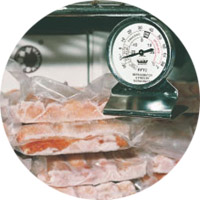
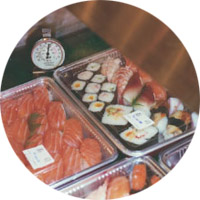
When power supply resumes, check the food carefully. If the refrigerator is contaminated by drips from thawed food, cleanse and disinfect it thoroughly to minimize the risk of cross-contamination. Frozen and chilled food stored in refrigerator during power failure/suspension can be consumed after thorough cooking if it has been kept at a temperature of 4°C or below. However, if the food has been stored at the "Temperature Danger Zone" (4°C to 60°C) for two hours or longer during the said period, the colour or smell of the food would have changed, or if you have doubt on the safety of the refrigerated food, you should discard the food.
Interpretation of Ordinance
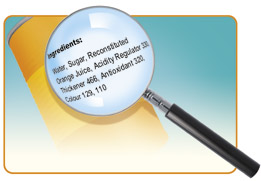
Regulation of Food Additives
Food additives are natural substances or synthetic compounds deliberately added to food during the manufacturing process. They mainly serve to extend shelf-life, enhance taste and flavour as well as to improve the colour and appearance of food.
There are many types of food additives, commonly-used ones include preservatives, antioxidants, colouring matters and sweeteners, etc. The laws of Hong Kong stipulate that food additives do not include vitamins and minerals used for enriching food nutrients, nor seasoning substances like salt, herbs or spices.
The food legislation of Hong Kong can be found in Part V (Food and Drugs) of the Public Health and Municipal Services Ordinance (Cap. 132) and its subsidiary legislation. Requirements on food additives are stipulated in the following Regulations:
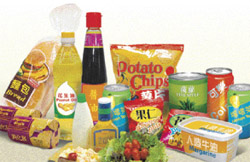
- Colouring Matter in Food Regulations (Cap. 132 sub. leg. H)
- The permitted colouring matters for food are listed in Schedule 1 of the Regulations.
- Sweeteners in Food Regulations (Cap. 132 sub. leg. U)
- The permitted sweeteners for food are listed in the Schedule of the Regulations.
- Food and Drugs (Composition and Labelling) Regulations (Cap. 132 sub leg. W)
- The composition of certain food is listed in Schedule 1 of the Regulations.
- Preservatives in Food Regulations (Cap. 132 sub. leg. BD)
- The permitted preservatives and antioxidants for specified food and their respective maximum concentrations are listed in Schedule 1 of the Regulations.
For details of the above legislation, please visit the website at www.elegislation.gov.hk.
Recently the food trade has requested the Government for permission to use a food additive named "Ethylene Diamine Tetraacetate (EDTA)"*. The Joint FAO/WHO Expert Committee on Food Addictives (JECFA) has evaluated EDTA and put it into the General Standard for Food Additives (GSFA), specifying its use and the maximum permitted level. However, according to the existing Preservatives in Food Regulations of Hong Kong, EDTA is not permitted for use in food. Therefore, it was gazetted on 28 October that EDTA would be included in the Regulations as a permitted antioxidant with effect from 23 December.
*EDTA extends the shelf-life of food by preventing deterioration (such as fat rancidity and change of colour) caused by oxidation.